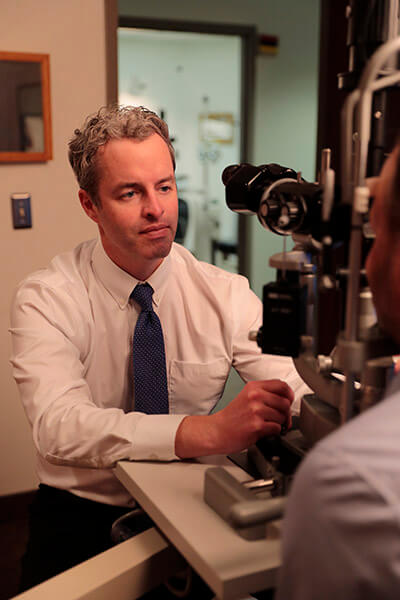Living with glaucoma and managing the disease may seem overwhelming at first, but with a little planning and dedication, patients can go on living their normal lives. Working with one of our fellowship-trained ophthalmologists at Michigan Glaucoma & Cataract, we can provide you with an appropriate plan. Patients are encouraged to be organized, well informed and comply with treatment.
Treatment of glaucoma typically involves taking medications at specific times of the days. Sticking to routine times of administration such as at breakfast, lunch, dinner, and bedtime can help result in successful management of the disease. Staying organized, setting reminders is one path to a successful treatment program. There are even smart phone applications that help you with your schedule.
Other medication tips:
- Maintain a log of the frequency and type of medications you take and carry it with you (a treatment plan will be provided to you at each visit)
- Keep up to date with your refills so you do not run out
- Keep a back up of the medication in case of travel or emergency
- If you miss a dose of your medication, take the missed dose as soon as possible and return to your regularly scheduled treatment plan

Be Informed
Being an informed patient will help you be a successful patient. This is a team effort, the physicians and staff of Michigan Glaucoma & Cataract are here for you, but you must do your part. Knowledge is power and the more you know the better off you will be in controlling this disease. If needed, there are resources such as occupational health, support groups and centers that can provide one with assistive devices to help activities of daily living.
Keep others informed. Be sure to let your primary care team know your diagnosis and the medications that you are taking. Let your family members know that you have been diagnosed with glaucoma as they are at greater risk of developing glaucoma. Early detection is the key to successful treatment, thus we recommend that family members be screened for glaucoma as there are typically no symptoms.
Talk to Your Glaucoma Doctor
Let your ophthalmologist know how things are progressing. Inform them if you are experiencing any side effects with your medication. Tell the doctor if you are experiencing any changes to your general health, wellbeing, or if your systemic medications have changed. If you need help or instructions on how to take your drops, lets us know.
The following changes in vision or eye problems should be reported immediately.
- redness or light sensitivity
- watery eyes
- itching eyes
- redness around the eyes such as the eyelids
- eye discharge
- worsening, cloudy vision
- halos around light
- pain
Please keep your glaucoma specialist informed. Be honest about your compliance with medications so that the doctor can make informed decisions about the effectiveness of therapy. Michigan Glaucoma & Cataract are committed to helping you with your treatment and preserving vision through support, education and quality care.
Healthy Choices for Glaucoma
Adopting healthy choices can lead to overall improved well being and enhance ocular health
Glaucoma eye-care tips include:
- Compliance with the scheduled treatment plan is key in preserving your eyesight
- Be honest with yourself and the doctor. Indicate on all visits whether you are taking your medications as indicated. This will help us determine and craft an appropriate treatment plan for you and make changes if necessary
- Maintain ocular hygiene
- For women, try to use eye make-up that does not irritate your skin. Consider hypo-allergenic make up as well.
- Try to avoid touching or rubbing your eyes. Some eye drops may temporarily cause your eye to feel scratchy and itchy. The drops may even cause temporary blurring.
- Use appropriate eye wear and protective eye wear. For example, safety glasses when working with tools and swim goggles when swimming, especially if you have a history of glaucoma surgery
Maintain healthy lifestyle habits:
- Exercise. Regular exercise can reduce risk factors for glaucoma and help maintain normal intraocular pressure.
- Eat an appropriate, healthy, and balanced diet.
- Do not smoke
- Do not smoke marijuana (the negatives far outweigh any positives)
- Reduce your stress, take time for yourself to enjoy your life, relax and take part in activities that you like.
Living with glaucoma requires some lifestyle changes, but it will not prevent you from living to your fullest potential. When properly managed and controlled, the vast majority of our patients maintain their sight. Follow your treatment plan accordingly, be an informed patient, talk with your doctors, be honest and ask questions if you are not sure. Glaucoma is a team effort. Michigan Glaucoma & Cataract is here to help you preserve your sight.

